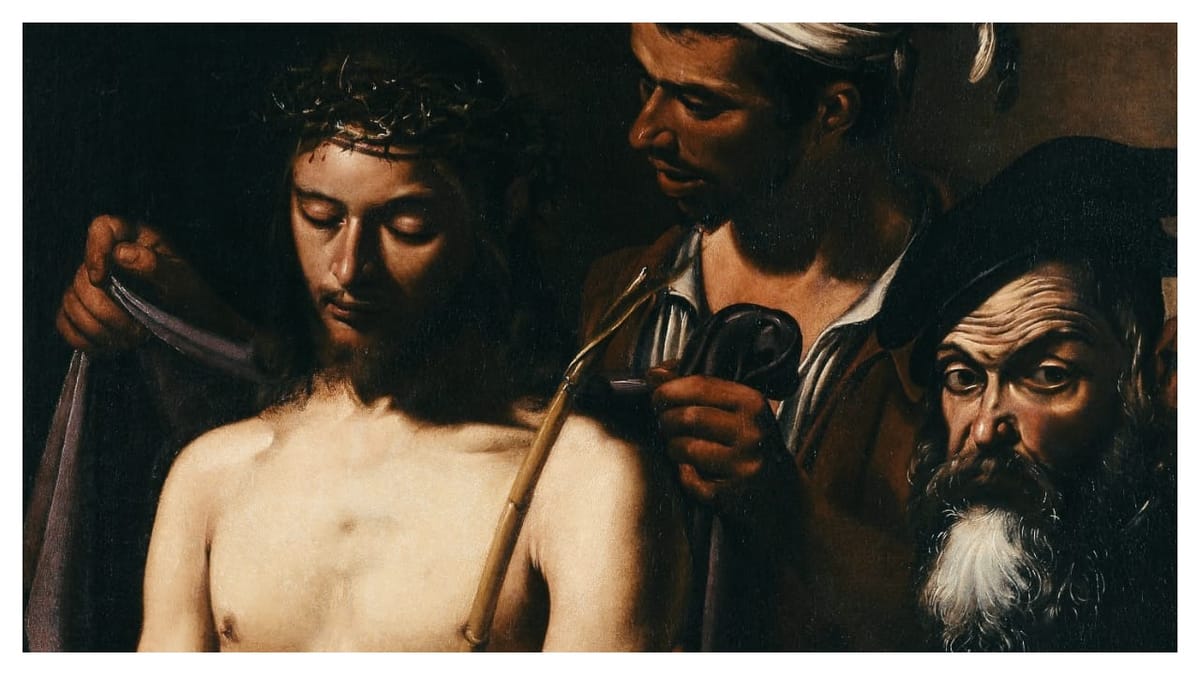Becoming a Throne
God seeks faithful servants to carry His Kingdom's keys and become thrones of His glory. Through revelation and surrender, you can walk in divine authority, transforming lives with His love and power. Are you ready to know the King and bear His weight? (Isa. 22:22–23)

"And I will place on his shoulder the key of the house of David. He shall open, and none shall shut; and he shall shut, and none shall open. And I will fasten him like a nail in a sure place, and he will become a throne of glory to his father's house."
— Isaiah 22:22–23
There is a divine pattern to Kingdom authority. It doesn't come by ambition or title, but through revelation, faithfulness, and union with the King. In the life of Eliakim, we find a prophetic shadow of what it means to walk in true spiritual authority: to be entrusted with keys, and ultimately to become a throne—a vessel from which the King's authority flows.
But what does that mean for you and me?
First a Servant, Then a Son
The story of Eliakim begins with his faithfulness. God says of him, "I will call My servant Eliakim…" (Isa. 22:20). Before he is entrusted with authority, before he becomes a throne, he is first found to be a servant—one who is faithful in the house of the king.
Faithfulness brings not only delegated authority, but also intimate knowledge of the King.
This echoes a pattern seen in Hebrews 3, where Moses is described as a faithful servant in God's house, but Christ is a Son over the house. The journey from servant to son is one marked by intimacy, obedience, and consecration. You don't graduate from servanthood—you deepen it. And in the process, you are transformed into a son, one who bears the nature of the King.
Eliakim wasn't a stranger in the king's house. He wasn't ambitious or self-seeking, like Shebna before him. He was trusted. Faithful. Known. And because of that, he was appointed, not self-promoted.
How Do You Get the Keys?
In Matthew 16, Jesus asks Peter the same question we must all answer: "Who do you say that I am?"
Peter replies, "You are the Christ, the Son of the living God." And Jesus responds:
"Blessed are you, Simon... flesh and blood has not revealed this to you, but My Father in heaven. And I give you the keys of the Kingdom..." (Matt. 16:16–19)
The keys are given on the basis of revelation. Not mere information. Not doctrinal correctness. But a Spirit-born, inward unveiling of who Jesus truly is—not just Savior, but King, not just a prophet, but God manifested in flesh.
Revelation of the Son brings authority. The more clearly you see the King, the more you are entrusted with the keys of His Kingdom.
These keys are spiritual. They speak of jurisdiction in the spirit realm—to bind and loose, to shut and open, to bring heaven's rule into earthly situations. But they are only placed in the hands of those who know the King and walk with Him in faithful obedience.
From Keys to Throne: Becoming the Place of His Rule
God said of Eliakim: "I will fasten him like a nail in a sure place."
His position was secure—not because he had built it, but because God placed him there. A nail in a sure place speaks of someone anchored, dependable, immovable. Someone consecrated and fully given to the purposes of the King.
And then comes the astonishing phrase: "He shall be for a glorious throne to his father's house."
He doesn't just receive authority—he becomes the throne. That is, he becomes the medium through which the King's rulership is expressed. He becomes the place where decisions are made, where justice is administered, where others find covering and order.
This is the pattern:
- Faithfulness in service
- Revelation of the Son
- Delegated authority (keys)
- Union with the King (becoming a throne)
The key is the authority. The throne is where that authority flows through you—because you are no longer your own.
For Such a Time as This
In an age where darkness seems to advance and spiritual battles intensify, God is not simply offering authority—He's calling for it to be exercised. The world doesn't need more religious observers but throne-bearers—those through whom Heaven's decisions flow with confidence and clarity.
When a person becomes a "throne of glory," their words carry weight not because of their eloquence but because of their source. When they pray, circumstances shift. When they speak truth, it penetrates hearts. When they extend mercy, healing flows. Not because they are special in themselves, but because they have become a conduit for the King's authority.
Consider the mother who speaks identity and blessing over her wayward child, not from desperation but from heavenly authority. Or the marketplace leader who brings Kingdom principles into corrupt systems, creating islands of integrity that eventually transform entire organizations. Or the intercessor who doesn't just petition heaven but administrates heaven's decisions on earth through authoritative prayer.
The enemy isn't intimidated by our knowledge about God, but by God Himself ruling through yielded vessels. This isn't optional in this hour—it's essential.
The Cost of Kingdom Authority
True authority always comes with cost. Eliakim carried "the weight of his father's house"—everything from "the cups to the flagons" was hung upon him. Authority brings responsibility. Those who become thrones must be willing to bear the weight of others' needs, struggles, and growth.
Jesus, the ultimate Key-Bearer, gained His authority through surrender and sacrifice. "Though He was in the form of God... He emptied Himself, taking the form of a servant... He humbled Himself and became obedient to the point of death" (Phil. 2:6-8). The throne came through the cross.
For us, becoming a throne means dying to self-will, self-promotion, and self-protection. It means enduring misunderstanding, facing spiritual opposition, and sometimes standing alone. But those who pay this price become vessels of transformation—carriers of a Kingdom that cannot be shaken.
What Does This Mean for Me?
God is still looking for Eliakims—those He can raise up, anchor, and entrust with Kingdom governance. Not rulers in name only, but those who are governed by God and become channels for His reign on earth.
To walk in this kind of spiritual authority, ask yourself:
- Am I a faithful servant in the house of the King?
- Do I walk in intimacy with Him, or am I still at a distance?
- Have I received a revelation of who Jesus truly is—not just with my intellect, but with my spirit?
- Do I seek keys (power) without being willing to be a nail in a sure place (stability, surrender)?
- Can the weight of others be hung upon my life? Am I trustworthy enough to carry others?
- Am I willing to bear the cost of true authority through surrender and sacrificial love?
Eliakim carried the weight of the whole house. God wants to raise up those who can carry others, not crush them.
"To him who overcomes, I will grant to sit with Me on My throne…" — Revelation 3:21
This is your destiny—not just to serve at the throne, but to become one. A place from which Christ's government flows. His voice, His wisdom, His justice, His love—flowing through you.
A Prayer for Throne-Bearers
Father, I surrender my ambition for a position and instead ask for Your position in me. Make me faithful first—trusted in the small before entrusted with the great. Open my eyes to see Your Son as He truly is, not as I've imagined Him to be. Place me as a nail in a sure place—immovable, anchored in Your purpose.
Lord, make me a throne from which Your decisions flow, Your justice speaks, and Your mercy extends. Let me carry others without crushing them. I accept the cost of this calling—the dying to self, the weight of responsibility, the opposition that may come. I choose to decrease that You might increase in me.
In this critical hour, raise up a company of throne-bearers who will stand as pillars in Your house, who will administer Your Kingdom with wisdom and compassion. For Your glory and Your Kingdom's advancement. Amen.
Final Question
Do you know the King? And are you faithful to Him?
Because from that place of faithfulness, He will entrust you with keys. And from there, He will make you a throne.




